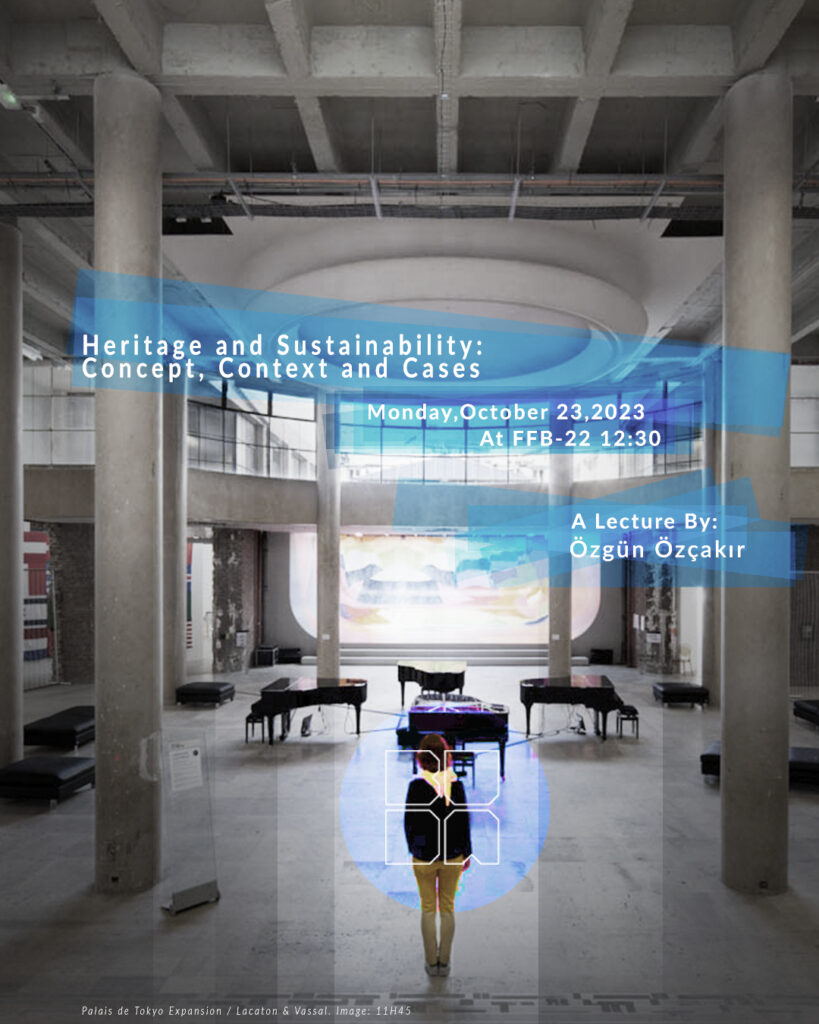
The concepts of “sustainability” and “sustainable development” have been officially introduced to the conservation field with the doctrinal documents published by ICOMOS and UN, such as The Valletta Principles (2011) and UN SDGs (2015). Yet, the critical analysis of these international documents is necessary since their practical reflection is generally disregarded. To fill that gap, international cases are useful tools for assessing the impact of various interventions on sustainability.
To understand the correlation between cultural heritage and sustainability, this lecture focuses on concept, context and cases. First, the lecture outlines the correlation between heritage and the concepts related to sustainability. Then, through the international examples, it aims at illustrating the ways to achieve sustainability in urban/rural areas by preservation of cultural heritage.
Biography:
Özgün Özçakır (Assist. Prof. Dr., METU) is an architect by training who is specialized in the preservation field. He has attended multi-disciplinary meetings as a speaker, including those organized by the Association of Critical Heritage Studies, the Association of Cultural Economics International, BTU Cottbus, Columbia GSAPP and TU Delft. He is a member of ICOMOS Turkey, and ICOMOS International Sustainable Development Goals Working Group. His research interests include heritage values, conservation policies in Turkey and heritage impact assessment.

